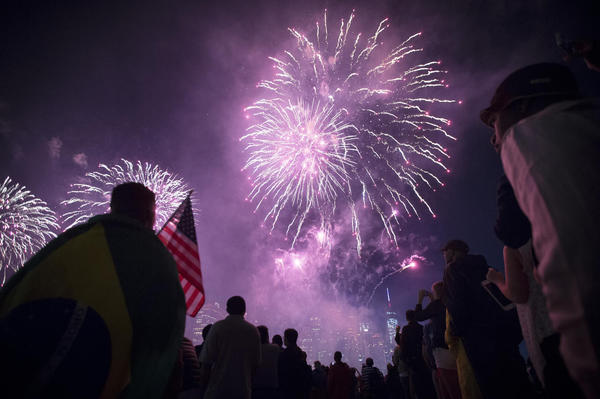-
Tips for becoming a good boxer - November 6, 2020
-
7 expert tips for making your hens night a memorable one - November 6, 2020
-
5 reasons to host your Christmas party on a cruise boat - November 6, 2020
-
What to do when you’re charged with a crime - November 6, 2020
-
Should you get one or multiple dogs? Here’s all you need to know - November 3, 2020
-
A Guide: How to Build Your Very Own Magic Mirror - February 14, 2019
-
Our Top Inspirational Baseball Stars - November 24, 2018
-
Five Tech Tools That Will Help You Turn Your Blog into a Business - November 24, 2018
-
How to Indulge on Vacation without Expanding Your Waist - November 9, 2018
-
5 Strategies for Businesses to Appeal to Today’s Increasingly Mobile-Crazed Customers - November 9, 2018
Local News: How bad is the air after a fireworks show?
Fourth of July fireworks temporarily increase the amount of particulate air pollution by an average of 42%, The Washington Post reports.
Advertisement
“These results will help improve air quality predictions, which now don’t account for fireworks as a source of air pollution”, said Dian Seidel, a senior scientist at NOAA’s Air Resources Laboratory in College Park, Maryland.
A new study from the National Oceanic and Atmospheric Administration determined that yes, the air gets bad during fireworks shows.
Environmental Protection Agency research has shown “a significant association between exposure to fine particles and premature death from heart or lung disease”.
Levels of fine particulates (in red) were highest on the evening of July 4. Without fail, they found that from around 9 to 10 p.m. each Independence Day, concentrations of fine particulate matter, or PM2.5, surged, teetering on the edge of the upper limit of what the EPA considers to be safe (and in some locations, wildly surpassing it).
But while the increase in pollution due to fireworks may sound frightening, most public health experts say those levels would need to be sustained for much longer before widespread health problems emerge.
Those sensitive to particulate matter pollution could include people with heart or lung diseases, older adults and children, the agency reports. “The study is also another wake up call for those who may be particularly sensitive to the effects of fine particulate matter”, Seidel said. For more information on risks, go online to the Environmental Protection Agency.
On a local level, increases in fine particulate matter varied depending on a number of factors, including the weather and the proximity of fireworks to the monitoring site. [50 Fabulous 4th of July Facts: History of Independence].
Scientists admit that a few elements of the study threw off readings, mainly because of the distance of air quality monitoring sites to the places where fireworks are set off. The study notes that one station was directly next to a fireworks site.
Advertisement
The exploding fireworks unleash tiny particles – about 1/30th the diameter of a typical human hair – that can affect health because they travel deep into a person’s respiratory tract, entering the lungs. People with asthma should follow their asthma action plans and be sure to have their quick relief medicine handy.





























